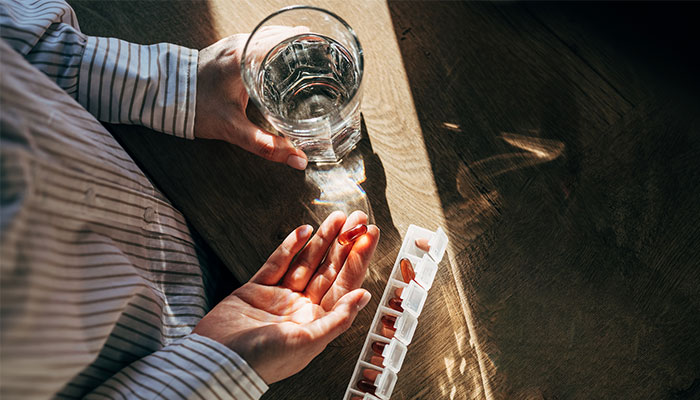Anxiety disorders affect about one in 10 people aged over 60 in Australia, yet mental health problems in this age group are often overlooked and undertreated.
And for those who do seek help, they are more likely to be offered medication rather than psychological therapy, says Associate Professor Carly Johnco from the School of Psychological Sciences at Macquarie University and Deputy Director of the Macquarie University Lifespan Health and Wellbeing Research Centre.

But Associate Professor Johnco's new research has shown that psychological treatments such as cognitive behavioural therapy (CBT) are effective in this age group — and appear to provide better outcomes than medication.
"There is a myth that psychological treatment won't be effective in older adults," says Dr Johnco.
"But research, including our new meta-analysis, shows that older adults can successfully learn and benefit from CBT, with evidence suggesting it may even lead to higher recovery rates than medication."
Associate Professor Johnco and Macquarie University colleagues analysed how well older people with anxiety recovered after medication or psychological therapies. Their results have been published the American Journal of Geriatric Psychiatry.
Until now, there hasn't been clear, accessible information about how likely each treatment is to lead to recovery.
Their meta-analysis included 22 trials, covering more than 2320 people aged over 60.
On average 53 per cent of older people recovered from an anxiety disorder after receiving CBT, while 36 per cent got better with medication treatment, the analysis revealed.
It also showed that older people were seven times more likely to recover from anxiety if they had CBT than if they had no treatment at all.
Those on medication were twice as likely to recover than those on a placebo.
"Importantly, people were just as likely to stick with therapy as with medication, with around one in five discontinuing both types of treatment," Associate Professor Johnco said.
Informed choices
CBT is the most common type of psychological therapy to treat anxiety. It helps people manage their anxiety by identifying unhelpful thoughts and behaviours, and learning new, more effective ways to respond.
Common medications prescribed for anxiety include two types of antidepressants, Selective Serotonin Reuptake Inhibitors (SSRIs) and Serotonin-Norepinephrine Reuptake Inhibitors (SNRIs).
Other medications that may be used are antipsychotics, anticonvulsants and sedatives.
"While we've long known that both psychological and medication-based treatments can be effective, many people are left wondering which is the right option for them," Associate Professor Johnco says.
"Until now, there hasn't been clear, accessible information about how likely each treatment is to lead to recovery.
"This has made it difficult for older adults and their families to make informed choices."
Their new review will help with that decision, providing easy-to-understand statistics on older people's chances of recovery with each approach.
Importantly their review provided clarity by separating out whether treatment had led to recovery (referred to as 'remission') or partial improvement (referred to as 'treatment response').

Clearer choice: Associate Professor Carly Johnco says her research results will help Australians over 60 make evidence-based decisions about treatment for anxiety disorders.
Previous reviews had used inconsistent definitions of "success" in treatment by combining or mixing up these two different types of outcomes, which made it harder to make a treatment decision.
"There are many factors to consider when deciding on a treatment path — such as how effective the treatment is, potential side effects, cost and time commitment. People need to make their own decisions based on their individual needs, preferences and medical history. But without easy-to-understand data on how well each treatment works, it's been especially challenging to weigh up the pros and cons," says Associate Professor Johnco .
Among older people psychological therapies have tended to be underused — even though they're often highly effective and well tolerated in this age group — compared with medication.
But medication comes with a number of risks, such as side effects, interactions with other medications and a higher chance of falls with some drugs.
"This review challenges the outdated idea that older people don't do therapy' or can't change," says Dr Johnco.
"There is substantial untapped potential for using psychological therapies like CBT to treat anxiety in older adults.
"Therapy is a strong first-line option that should be made more available to older Australians, especially since it comes without the side effects of medication and offers lasting skills to manage anxiety over time."
Carly Johnco is an Associate Professor in the School of Psychological Sciences and part of the Lifespan Health and Wellbeing Research Centre.






